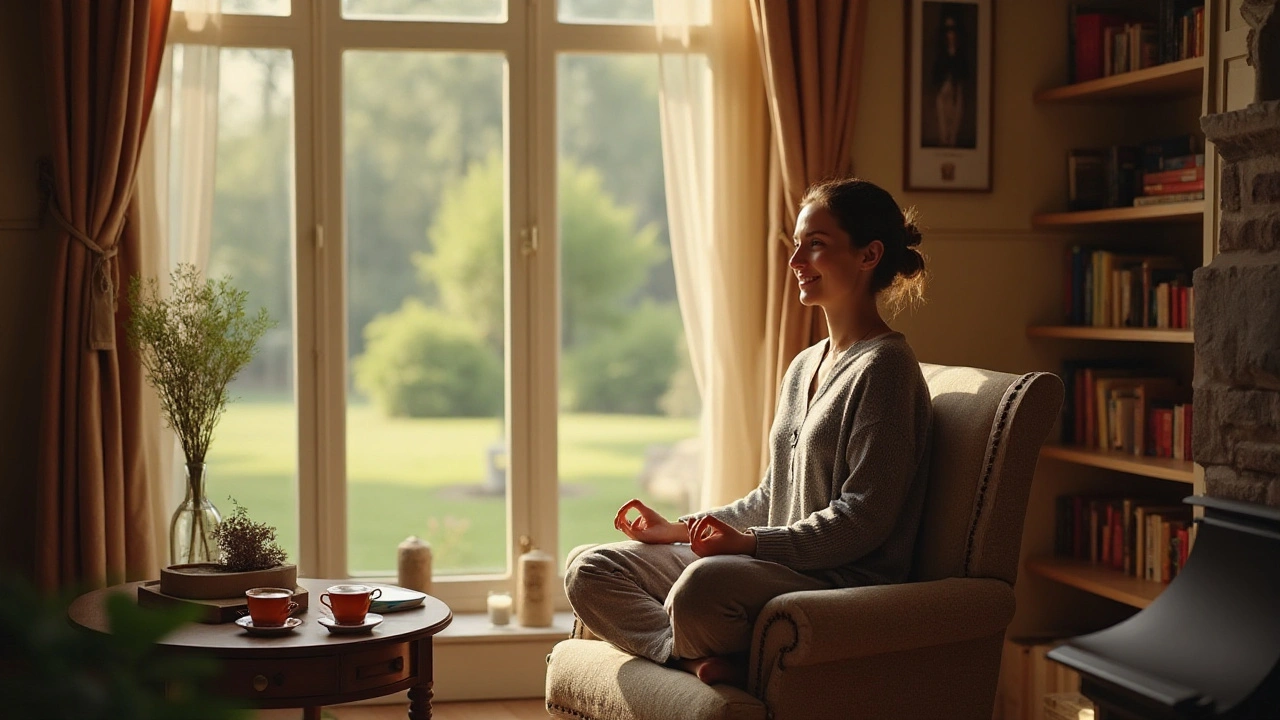Relaxation Tips: Fast, Practical Ways to Calm Your Mind
Feeling wired? You can lower stress in minutes with simple techniques that actually change your body’s response. Try paced breathing — breathe in for four counts, hold two, out for six — and notice your heart rate settle. This kind of breathing activates the vagus nerve and helps you feel calmer fast.
Short exercises beat long plans when you’re pressed for time. Use a 5-minute body scan: sit, focus on your feet, then move attention slowly up the body. Tension shows itself — notice it, breathe into it, and let it go. If thoughts distract you, name them (worry, task, memory) and bring focus back to your breath.
Quick 5-minute tricks
Box breathing (count 4-4-4-4), hand-on-heart breathing, and the 5-4-3-2-1 grounding trick are reliable and fast. For 5-4-3-2-1 look around: name 5 things you see, 4 you can touch, 3 you hear, 2 you smell, 1 you taste or feel — it brings you back to the present in seconds. Walk outside for two minutes if you can; a short change of scene lowers cortisol.
Progressive muscle relaxation works well before sleep: tense a muscle group for five seconds, release, move to the next group. It helps your nervous system shift from alert to rest. Stretching or a few gentle yoga poses like child’s pose also ease tight shoulders and free up breathing.
Daily habits that build calm
Make calm a habit, not an afterthought. Keep a 2-minute breathing break every three hours. Turn off screens 60 minutes before bed; dim lights and a simple bedtime ritual train your brain to relax. Small choices add up — a balanced snack with protein and fiber steadies blood sugar and lowers stress-driven snacking.
Use tools that fit your life. Mindfulness apps can guide short sessions. Aromatherapy with lavender or bergamot can nudge your mood, and a sports or restorative massage helps if you hold tension in your body. Creative activities — drawing, playing a simple tune, or doodling for five minutes — quiet an overactive mind without forcing it.
Keep it practical: pick two techniques and do them daily for a week. Track what helps — sleep, mood, focus — and drop what doesn’t. When stress spikes, return to the basics: breathe, ground, move. Small, clear steps beat big promises. You don’t need perfect practice, just regular little resets that fit your day.
Match techniques to the moment. Use energizing breath or a brisk 2-minute walk before a meeting to sharpen focus. Choose soft breathing, dim light, or a warm drink after dinner to signal the body it’s time to slow down. Short bursts work during work hours; longer routines fit mornings or evenings.
If relaxation techniques don’t help after weeks, talk to a professional. Therapists can teach targeted skills like exposure or guided relaxation, and doctors can rule out medical causes. Good support speeds recovery and prevents small stress from growing into big problems.
Try one tip now; small changes add up fast for sure.
Mastering the Art of Calmness in a Busy World
In today's fast-paced world, finding calmness is essential for mental and emotional well-being. This article explores practical tips and techniques to achieve serenity amidst the chaos. By integrating simple habits into daily routines, individuals can navigate stressful environments with greater ease, balance, and peace.
View More





